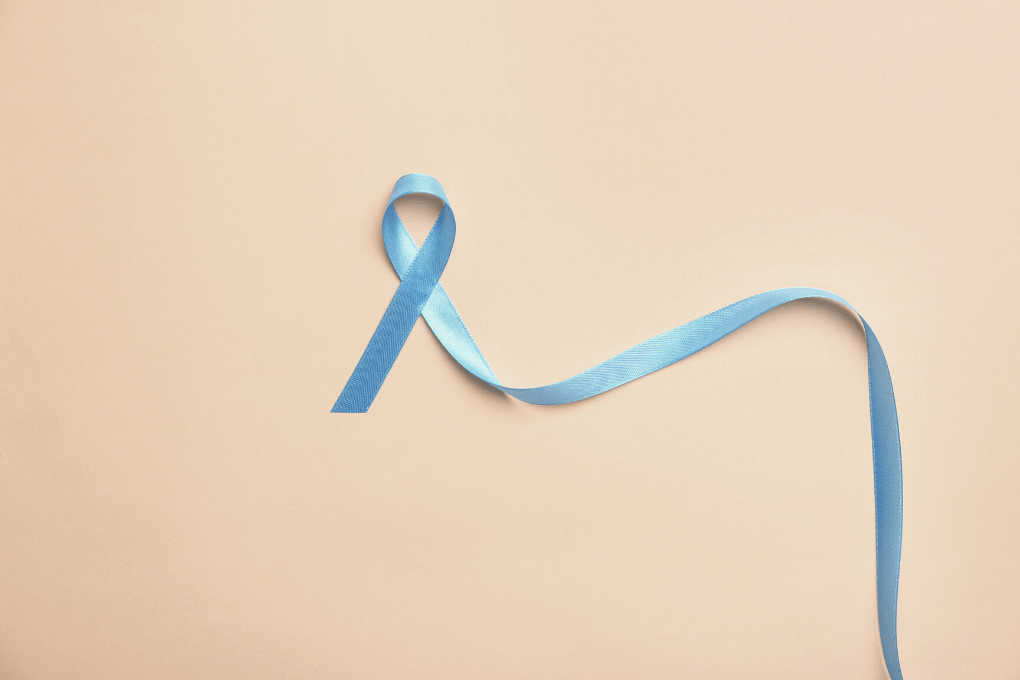Gut Health, Nutrition
The astonishing truth about Bowel Cancer in young people and how to reduce your risk
Most people under the age of 50 wouldn’t think they would be at risk of getting bowel cancer. The shocking truth is that 1 in 10 Australians under the age of 50, are diagnosed with bowel cancer every year and this is increasing. Bowel Cancer Australia even states that it is the deadliest one for young people aged between 25-34 years!
The risk however does increase with age and it is recommended you screen for it from the age of 45 years on. At present, it is the third most commonly diagnosed cancer in Australia! The good news however is that the survival rate is high if it is detected early. The only issue is, fewer than 50% of patients are actually diagnosed early.
So, what signs do you need to look out for and how can you lower your risk? But first, let’s clarify what bowel cancer is.
What is bowel cancer?
Bowel cancer, also known as colorectal cancer, develops on the inner lining of the bowel. It usually starts with the growth of polyps which can then develop into invasive cancer cells if they are left undetected. It can be located anywhere within the bowel eg. the colon or large intestine (colon cancer) or the rectum (rectal cancer).
Treatment of bowel cancer varies depending on where it is located. Most commonly surgery is carried out to remove the invasive cells but treatment can also include chemotherapy and/or radiotherapy. Some patients may also require a colostomy (an artificial opening in the abdominal wall to allow the removal of waste).
There is a whole range of side effects that can accompany cancer treatment but some of the common ones include fatigue, a change in body composition (more specifically an increase in body fat), pain, feeling vague or unable to focus, and sleep disturbances.

Bowel cancer signs to look out for
Quite often there are no signs in the early stages of bowel cancer. This is why it is so important to screen for it, particularly after the age of 45. According to Bowel Cancer Australia if you notice any of the following signs (if they persist for longer than 2 weeks) you should see your doctor:
- Blood in your poo or rectal bleeding
- A recent, persistent change in bowel habit (e.g. diarrhoea, constipation or the feeling or incomplete emptying)
- A change in the shape or appearance of your poo (e.g. narrower poos or mucus in poo)
- Abdominal pain or swelling
- Pain or a lump in the anus or rectum
- Unexplained anaemia causing tiredness, weakness or weight loss
How to reduce your risk
When it comes to looking at your risk factors for bowel cancer, there are modifiable factors (things you can change) and non-modifiable (things you can’t change). The things you can’t change but appear to increase your risk include age (over 45), a family history, genetic predisposition, and your personal health history (for example people with ulcerative colitis or Chrohn’s are at higher risk).
There are a number of modifiable things you can do however to lower your risk and these are related to your diet and lifestyle. You can reduce your risk of bowel cancer by not smoking, reducing your alcohol intake, reducing your red meat & processed meat consumption, maintaining a healthy weight, eating a high fibre diet, and engaging in at least 150 minutes of physical activity a week.
Let’s dive a little deeper into some of these things…

Exercises effect on bowel cancer and bowel cancer risk
Interestingly, exercise has a big impact on both the prevention and management of bowel cancer. It is thought to reduce your risk of bowel cancer by up to 24%. Even bowel cancer survivors can significantly reduce their risk of the cancer returning by engaging in regular exercise.
Recent studies have also looked at the benefits of exercise for patients undergoing cancer treatment. Research shows it can help manage treatment side-effects, improve your mental health and overall quality of life, and speed up recovery. The Clinical Oncology Society of Australia (COSA) even recommends it be included in all cancer patients’ treatment regimen.
So what exercise should you be doing? If you are exercising to prevent bowel cancer and to maintain a healthy lifestyle, then it is recommended you do whatever exercise you enjoy. Ideally aiming for a mixture of aerobic fitness (walking, jogging, cycling) and strength training.
For patients who are currently receiving cancer treatment, aerobic exercise and/or supervised strength training is recommended and safe to do. However, it is suggested you avoid any activity that may increase your risk of fractures or infections. Also, if you have had a colostomy, you should avoid any activity that may put pressure on your abdomen. Patients undergoing treatment should seek the advice of a health professional that specialises in this area to ensure the training program is designed specifically for you.
So how much exercise and what level of intensity. For everyone, cancer or not, you should be aiming for 150+ minutes of moderate-level intensity exercise per week. Cancer patients may need to gradually work up to this and will vary day-to-day depending on their treatment. Moderate-level intensity means moving enough to puff. A good indicator is that you can talk but not sing.

Diet and Preventing Bowel Cancer
There is good evidence to show that diets high in fibre can help prevent bowel cancer. This is because it helps reduce the risk of constipation and inflammation within the bowel wall. There are 2 types of fibre, soluble and insoluble and both are important to have in our diets. Soluble fibre includes fruit, vegetables, flaxseed, lentils and beans whereas insoluble fibre includes wholegrain foods, nuts, seeds and the skins of fruit and vegetables.
It is also recommended that you lower your consumption of red and processed meats such as bacon, salami and other deli meats. Red meat should be reduced to no more than 3 times a week whereas as processed meat should be minimal or not at all.
Red meat contains haem iron which when broken down in the gut forms N-nitroso compounds. These compounds can be damaging the gut lining and may lead to cancer forming cells.
Charring or barbequing meat also increases your risk. If you are going to barbeque your meat it is recommended to partly cook in the oven first to reduce its time on the flame or grill.
In summary
In summary, general gut health, diet, exercise and living a healthy lifestyle are all important to reduce your risk of bowel cancer. If you are over the age of 45 years old it is highly recommended you have a screening every 2 years. Eligible Australians aged between 50 to 74 can be sent a free, simple test that can be done at home.

Alexandra Shepherd
Pharmacist
This blog post was written by Alexandra Shepherd, Pharmacist at Nourish Health



